To view a list of the resources available to be reviewed, click here.
August 2, 2017
Lutheranism 101 for Kids
Review by Pr. Jon Langness
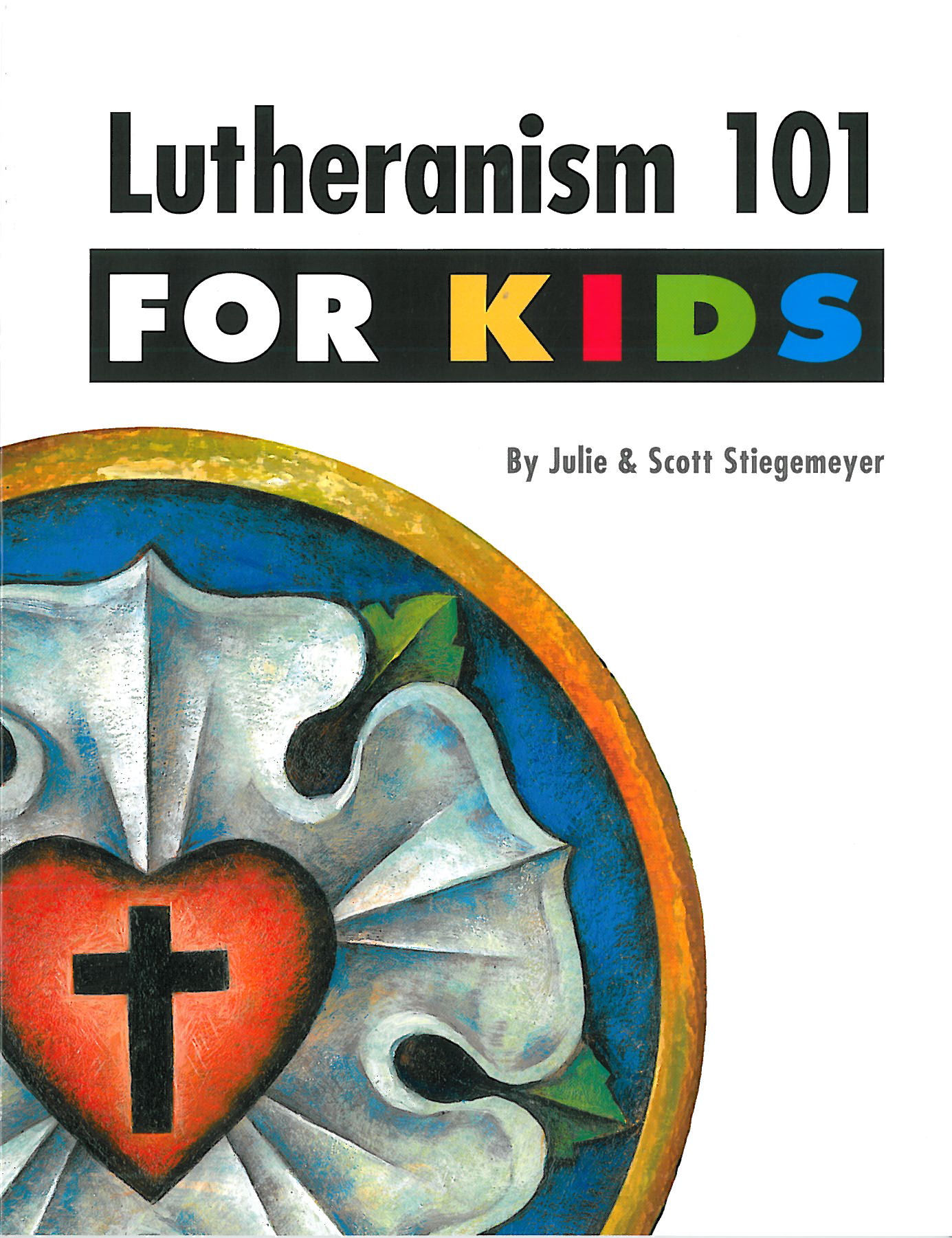
Lutheranism 101: For Kids by Julie and Scott Stiegemeyer is a short book designed to teach kids about Jesus. The book does this by highlighting important literature in the Lutheran church and showing us how it points to Jesus. It is simple to understand and is great for parents to use to teach their kids. As a pastor, I would love for each kid to come to confirmation class having already been taught these key truths of Christianity!
The book is broken down into three sections: The Bible, The Catechism, and The Hymnal. The Bible section discusses who God is, the catechism section discusses the sacraments, and the hymnal emphasizes various aspects of the worship service.
The authors do a great job of covering difficult topics in a way that is understandable, yet in a way that does not speak where Scripture does not speak. It leaves the mysteries of God unanswered but continually points us to what God has done for us in Jesus. Bible verses are often given as the authority for answering the questions, and definitions are given for "Christianese" words that we so often hear and may not know how to define.
So often our worship is focused on us, what we do, how we respond, what we bring, etc., but is that the main point of worship? Throughout the book the authors point us again to the gifts that God gives to us in the worship service—His Word, faith, forgiveness of sins, assurance of salvation, Baptism, Lord's Supper, and most of all, Jesus. One of the beauties of Lutheran doctrine captured in this book is that it is all about what God has done for us and continues to do.
It is practical in the sense that it deals with everyday life and everyday questions that kids have: Why is there suffering? Who is God? What is He like? How do I pray? Why do we go to church? Why do we do __________ at church? Who is Jesus? Why did He die? How come we say the same things every week? How do I get faith?
To summarize my thoughts: This book is excellent because it is all about what Jesus has done for you. It is personal. It is applicable. Best of all, it shares how Lutheran theology isn't about glorifying Luther, but is about delivering Jesus . . . to you.
Pr. Jon Langness
Abiding Word Lutheran Church
Deshler, NE
Order your copy here: Ambassador Publications Online Store
Also Available:
August 9, 2017
Called to Believe, Teach, and Confess:An Introduction to Doctrinal Theology
Review by Diane Brubakken
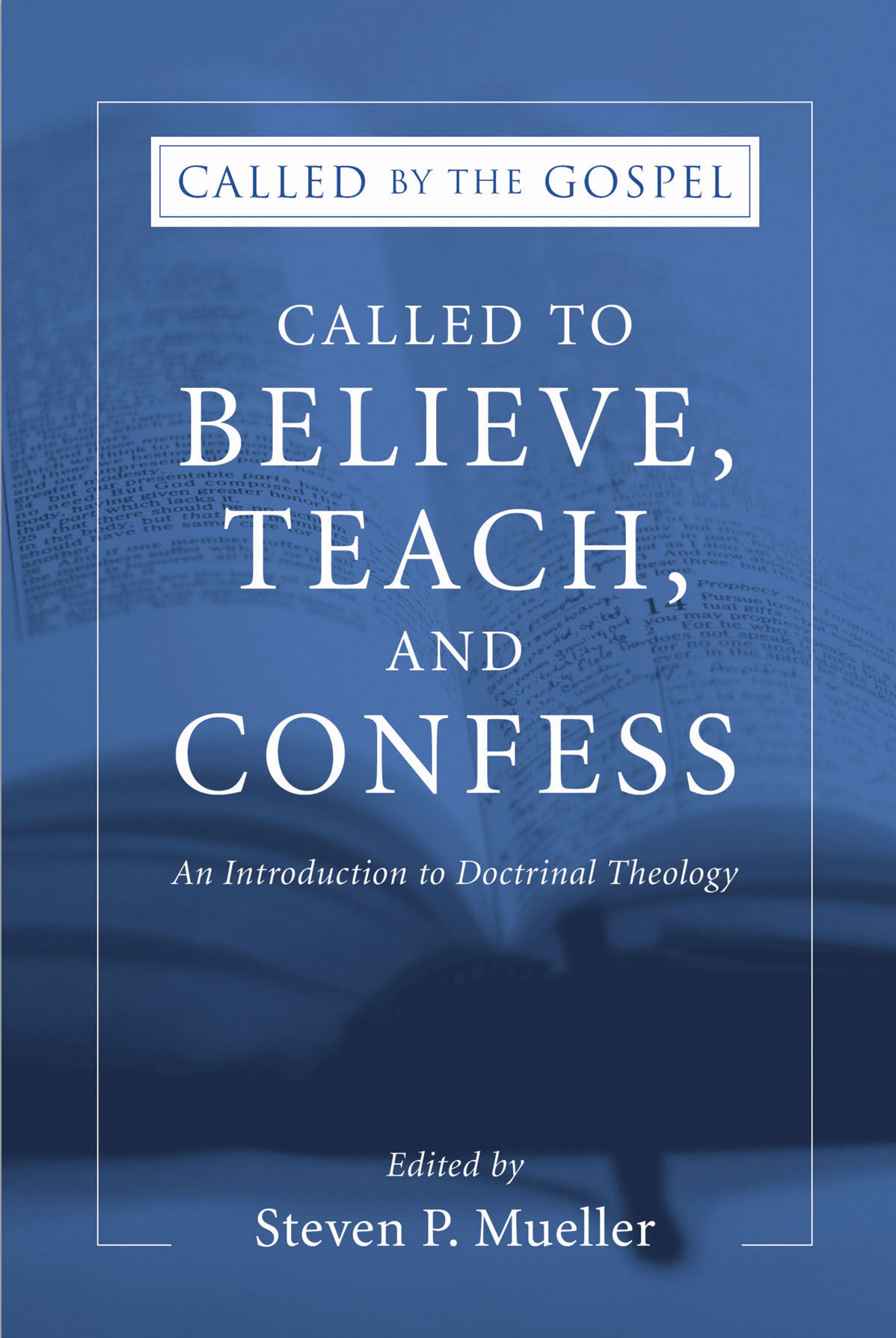
Being the 500th anniversary of Martin Luther nailing the 95 Theses to the Church in Wittenberg, it seems like you can find references to Luther and the Reformation all over, which is understandable as the impact Luther had was great, especially for those of us who call ourselves Lutherans. However, if someone asked you why you believed something as a Lutheran, how clearly do you think you could answer? I know I’ve been in situations where I haven’t been able to communicate something properly; I’m sure you have as well. As believers though, we should be able to tell others not only what we believe, but why, which is what the book Called to Believe, Teach, and Confess: An Introduction to Doctrinal Theology sets out to do.
The first thing you might notice when you see the book Called to Believe, Teach, and Confess is the size. As a lengthy book (with a slightly imposing title), it may seem daunting to those who haven’t spent much time studying theology. However, as the authors point out in the first chapter, theology “is the study of God as He reveals Himself,” and it “seeks to understand the things that God has revealed to us and how this revelation applies in our lives and world.” This is why a book like this is something that is beneficial for all believers, because it encourages the growth and understanding of our faith. “Theology is not simply an academic exercise . . . it helps us understand biblical teaching better and aids us in presenting and communicating it to other people.” It brings us to a place where we can understand not only what we believe, but also why we hold to a particular belief, and how that belief is put into practice in our daily lives.
The book itself is well written in an engaging and easy-to-read manner, which allows readers to focus on the content being discussed. The authors are all Lutheran pastors and professors, which allows them to focus the way they approach each topic, grounding it in Scripture and providing a solid Lutheran understanding in each chapter. The book is set up with Scripture references in each chapter, allowing you to read your Bible along with it, reading for yourself the passages they are drawing from. It also includes additional resources for furthering your study on each subject, as well as providing study questions and a glossary for terms that can aid in your understanding. Whether reading it on your own or going through it with a group, it is a beneficial book to read for all who are seeking to deepen their understanding about what we believe.
Diane Brubakken
AFLC Parish Education Administrative Assistant
Plymouth, MN
Order your copy here: Ambassador Publications Online Store
Also available in an abridged and condensed version, Called to Believe: A Brief Introduction to Christian Doctrine.
Also Available:
August 16, 2017
Faith Alone: A Daily Devotional
Review by Andrea Christenson
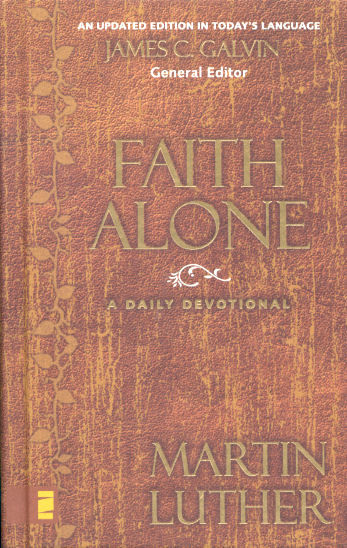
A prolific writer, Martin Luther penned commentaries, theological papers, lectures, and a Bible translation. His students carefully transcribed hundreds more of his lectures, and even his dinner conversations. Over the following 500 years, autobiographies by the score entered the library of works by and about Martin Luther. One glance at the Martin Luther section at any bookstore quickly overwhelms the casual reader and even stymies the dedicated Luther student. Where to start?
Faith Alone is just the book for beginners and the dedicated alike. This devotional takes the words of Luther and breaks them down into bite-sized readings perfect for daily consumption. The editor, James C. Galvin, pairs each reading with Scripture, highlighting the truth Luther is illuminating with his words. The team behind Faith Alone carefully translated selections of Luther’s works from German into modern English. They chose excerpts such as the gem found in the devotion for January 9. Here Luther explains the text of I Peter 1:17: “So if you call God your Father, live your time as temporary residents on earth in fear. He is the God who judges all people by what they have done, and he doesn’t play favorites.” (Note: Faith Alone uses the God’s Word translation of the Bible.)
Luther says: “If a Christian is a sincere believer, he has all of God’s treasures and is God’s child. The rest of his life on earth is merely a pilgrimage. God allows him to live in this body and walk on this earth so that he can help other people and bring them to heaven. Therefore, we must use all things on earth in no other way than as a guest who travels across the country and comes to an inn. He spends the night there and takes only food and lodging from the innkeeper. He doesn’t claim that the innkeeper’s property now belongs to him. This is how we must deal with material possessions, as if they did not belong to us. We should enjoy only as much as is necessary for us to maintain the body and use the rest to help our neighbors.”
Some of the selections in the book do remain difficult to muddle through—even after translation, and simplifying Luther’s writings aren't always easy to decipher.
Faith Alone stands as an excellent introductory taste of the varied works of Martin Luther. Every home needs a copy.
Andrea Christenson
Amery Free Lutheran Church
Amery, WI
Order your copy here: Ambassador Publications Online Store
Also Available:
August 23, 2017
Praying Luther's Small Catechism
Review by Pr. Sam Wellumson
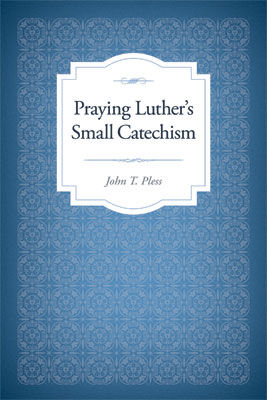
Too many people see the Small Catechism as “that book” from confirmation class. Now, the Catechism sits gathering dust on a shelf or tucked away in a box—somewhere. In his preface to the Large Catechism, Luther wrote:
I beg these lazy-bellies and presumptuous saints, for God’s sake, to get it into their heads that they are not really and truly such learned and great doctors as they think. . . . Even if their knowledge of Catechism were perfect (though that is impossible in this life), yet it is highly profitable and fruitful daily to read it and make it the subject of meditation and conversation.
As the Catechism is a succinct teaching of the Scriptures, it should be a regular part of the life of the believer. We never grow past our need to hear and learn the Commandments, Creed, Lord’s Prayer, Baptism, Confession, and the Lord’s Supper. Rev. Pless states in the first chapter, “[T]o pray the catechism is to learn how to speak to God the Father in the name of the Son through the Holy Spirit who calls us to faith in the Gospel.”
Praying Luther’s Small Catechism offers a framework for using the Catechism as it was used during the Reformation—as a prayer book.
In the Ten Commandments chapter, Pless walks through each commandment and explanation following the pattern for each Commandment:
· Instruction – What is God teaching me?
· Thanksgiving – What gift is God protecting for me?
· Confession – How have I failed to keep this Commandment?
· Petition – Asking God’s help to observe the Commandment.
Turning to the Creed, Pless offers a model of how we can pray to God in light of who God is as our Creator, Redeemer, and Sanctifier. The chapter helps direct the reader how to confess who God is, pray, and give thanks for God’s gifts.
The book continues through the Lord’s Prayer, Baptism, Confession, and the Lord’s Supper, giving shape to our prayers as those who have received our Lord’s name in Baptism and are fed by Him in Communion.
I will freely admit, when I first saw this title was being released, I was skeptical. However, having read the book, it is an invaluable primer on prayer that every believer will benefit from.
Give it a try. It might get you to dust off your Catechism, and that is a good thing.
Pr. Sam Wellumson
Christ the King Free Lutheran Church
East Grand Forks, MN
Order your copy here: Ambassador Publications Online Store
Also Available:
August 30, 2017
Luther's Small Catechism in Illustration: Study Guide
Review by Pr. Jason Holt
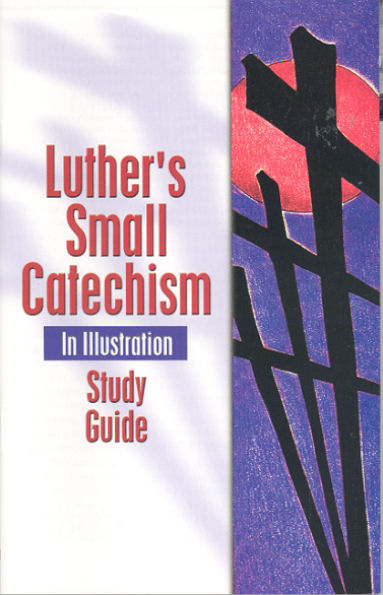
The Holy Bible is the inspired and inerrant Word of God. It is living and active! God’s Word is the believer’s source for faith and life. With this knowledge, it becomes the consistent task for believers in the local congregation and within families to pass on its content to the next generation. Luther’s Small Catechism offers a valuable tool for biblical instruction, but where does someone start if that person is not familiar with Luther’s Small Catechism?
Ambassador Publications offers a valuable 32-page resource that both summarizes catechism content and explains the catechism posters available from the Sunday School series. Luther’s Small Catechism in Illustration Study Guide offers first a brief history of the conditions in Luther’s day that led to the formation of the catechism. It is helpful to recognize that Luther’s Small Catechism began as a parent aid for the home to teach children the essentials of the faith.
The Study Guide addresses the four major sections of the catechism, namely, the Ten Commandments, the Apostles’ Creed, the Lord’s Prayer, and the Means of Grace. Within each section, the biblical basis is noted with scriptural support. After considering the concept from God’s Word, the catechism posters are defined piece by piece to give the reader the full insight of the illustrations. The final pages provide review questions and answers for each section.
Having taught confirmation for two decades, this resource has many practical uses. In addition to the obvious application within Confirmation, the Study Guide could be utilized by a local congregation as a supplement to an elementary Sunday school class or an after-school kids’ program. Since the Study Guide includes the full catechism posters as visuals with detailed explanations of the meaning behind each one, it may also be useful for adult classes, including membership sessions.
Beyond the local congregation, the Study Guide could be given to families with children, especially those younger than confirmation age. This step could introduce the structure of Luther’s Small Catechism in advance of those years of training. When a parent and younger child interact on the content of God’s Word in the home, then Luther’s original vision comes to fruition as another generation grasps the truth and grace of God in the Lord Jesus Christ.
Pr. Jason Holt
AFLC Director of Youth Ministries
Plymouth, MN
Order your copy here: Ambassador Publications Online Store
Classroom sized and personal sized catechism posters available:
Also Available:



















